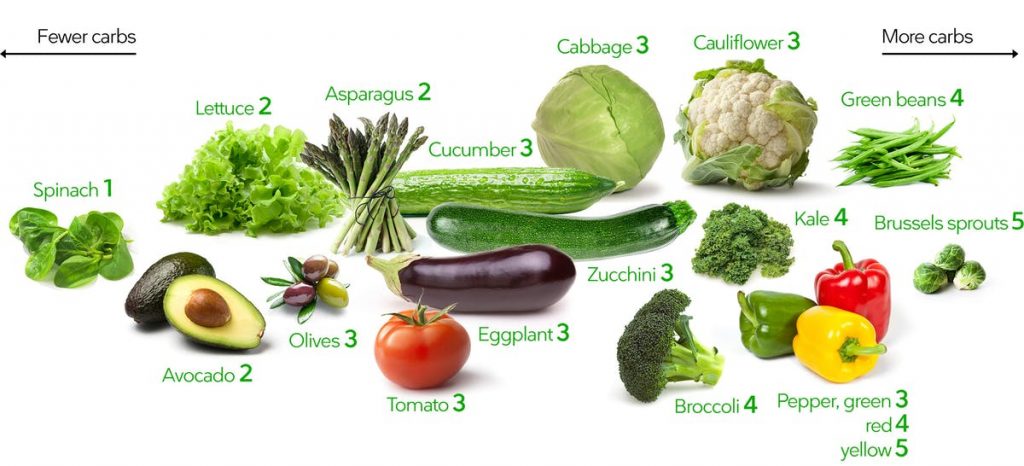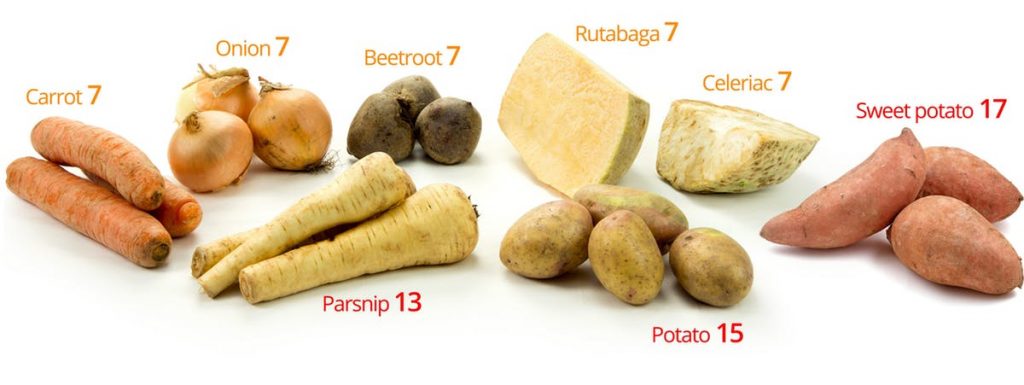Traditional people consumed a very wide variety of vegetables including high-starch roots and tubers. Many cultured remained healthy on this diet generation after generation. However modern people now have metabolic conditions that may be improved by decreasing insulin and blood sugar. Low-carb and ketogenic diets play an important role in the treatment of certain conditions.
For more information see:
- The Hidden Problem of Chronic Hyperinsulinemia – by Amy Burger, Wise Traditions Journal
- Understanding and Managing Type 2 Diabetes – by Ann Childers MD, Wise Traditions Journal
- Type 3 Diabetes: Metabolic Causes of Alzheimer’s Disease – by Amy Burger, Wise Traditions Journal
For those following this way of eating it may be necessary to limit or avoid vegetables if they spike insulin or blood sugar in that individual. In general vegetables that grow above ground are lower in carbs than those that grow below ground. We recommend organic vegetables when ever possible and always consuming vegetables with fat.
Vegetables are most nutritious when served with a fat or oil, such as salad with homemade olive oil dressing, cooked vegetables with butter or soup with cream. The nutrients in fruits and vegetables are much more available when they are eaten with good fats.
Read More >> Download Healthy 4 Life
And see our page on Vegetables & Fruits
Above Ground Vegetables
These above ground vegetables are very low in carbohydrates and can be consumed fairly freely on a keto diet:
Leafy greens, asparagus, cucumber, cabbage cauliflower, green beans, avocado, olives, tomato, peppers (red, yellow and green), eggplant, zucchini, kale, Brussels sprouts, broccoli and celery.
Below Ground Vegetables
These below ground vegetables are higher in carbohydrates and may need to be kept to small amounts:
Carrots, onions, beet, celeriac, rutabaga.
These vegetables have even higher carbohydrate levels, and will need to be avoided completely by some people:
Potato, sweet potato, parsnip.
For more details see: Low-Carb Vegetables from Diet Doctor
Fermented Vegetables
We recommend introducing small amounts of fermented vegetables to your diet, and working up to at least 2 tablespoons per day.
See: Fermented Foods




